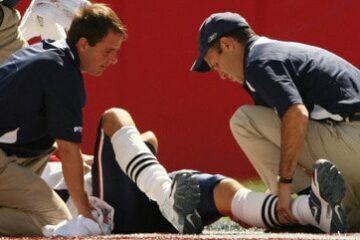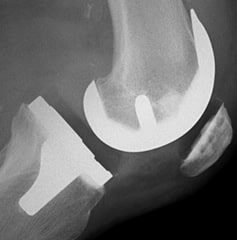
Successful knee replacements can radically improve your quality of life. On the other hand, if your knee replacement does not go well, it will be a source of never ending frustration and disability. While many people do well, and some do exceptionally well, there are still a fair number of you out there who continue to have problems.
What can be done to maximize your chances of success following a knee replacement?
A successul, well functioning knee replacement will be the result of a reproducible process that should be relatively surgeon agnostic, as well as prosthetic agnostic. That means that there are many surgeons capable of getting you back on your feet. Many are right in your backyard. You shouldn’t succumb to the hype or feel the need to travel to Chicago and pay $60,000 for an ambulatory knee replacement. You don’t need to head to a major NYC center and pay $20,000 out of pocket or more. Stay where you are and spend the time to find the surgeon who is capable of helping you… they exist.
The prosthesis chosen for your knee replacement procedure matters less than you think. Don’t believe all the marketing hype about circles, or rotation, etc. There are far more important things to worry about.
A succesfful knee replacement is related to proper:
- Proper patient selection
- Proper physician selection
- pre-operative planning
- pre-operative medical optimization : Glucose control, smoking.
- pre-operative rehab
- aggressive anti-infection techniques
- proper surgical technique
- multi-modal anesthetic techniques
- appropritate post surgical rehabilitation
High volume surgeons and high volume hospitals are best suited for your joint replacement needs. But going to a surgeon who does too many can be a problem too. No one wants to think that their surgeon is rushing, or not present in the room for the majority of the procedure.
Rest assured, there are plenty of quality joint replacement surgeons in your backyard. Find one, ask about their volume, their complications, will they be in the case with you the entire time?
Focus on getting yourself in the best condition possible before surgery. If you are a diabetic thats means getting your HgbA1c close to 8. If you smoke, stop. If you are morbidly obese, consider weight loss first. If you have poor oral hygiene, have your teeth checked. Try prehabilitation, or rehab before your surgery. The better shape you are going into surgery, the better the chance for a more rapid return to function.
You are are the most important variable in the overall scheme of things. Your commitment to getting better, the work you plan on putting into your rehabilitation before and after surgery, and your desire to get better all have a lot to do with whether or not you will have a “successful” knee replacement.
That being said, the sad truth is that up to 10% of you will not be happy with the result regardless of how well the procedure went and how hard you committed to your rehabilitation. We are working hard to find out why that number remains so high… but the cause of pain after an otherwise well executed knee replacement remains elusive.













